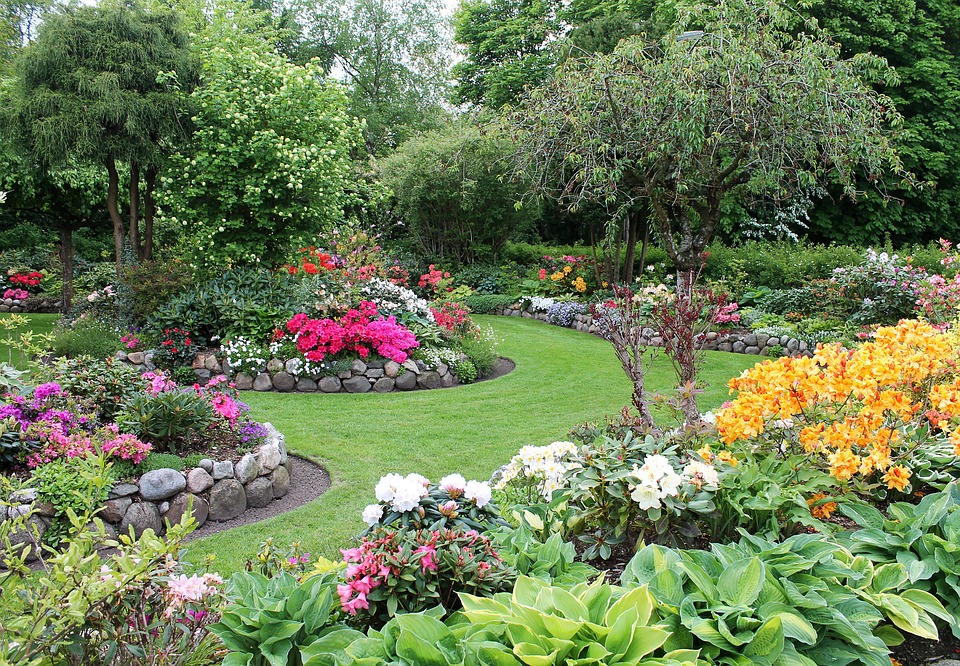This comprehensive guide delves into the world of rabbit-proofing your garden, providing a wealth of knowledge and practical strategies to protect your precious plants from these persistent herbivores. From understanding rabbit behaviour to implementing effective deterrents, we equip you with the tools and techniques needed to maintain a thriving garden, free from unwanted nibbling.
Part 1: Understanding the Rabbit Problem

1.1 Rabbit Behaviour and Preferences
Rabbits are naturally curious and adaptable creatures, often drawn to gardens for their abundance of delicious vegetation. Understanding their behaviour is crucial in developing effective deterrents. They are most active during dawn and dusk, and are particularly attracted to:
- Fresh, succulent leaves, especially those with high water content.
- Tender shoots and buds.
- Fruits and vegetables, particularly those grown close to the ground.
- Flowers, especially those with vibrant colours and sweet scents.
1.2 Identifying Signs of Rabbit Damage
Recognising the signs of rabbit activity in your garden is crucial for early intervention. Look for these telltale indicators:
- Nibbled Plants: Often characterized by clean, angled cuts, usually at a 45-degree angle.
- Holes Dug Near Plants: These indicate potential entry points and suggest rabbits are actively seeking access.
- Droppings: Small, round pellets, often found clustered near nibbled plants.
- Footprints: Especially visible after rain, particularly in soft soil around plants.
1.3 Assessing the Severity of the Problem
The extent of rabbit damage will determine the best course of action. Consider these factors:
- Garden Size: Smaller gardens may require more intensive protection.
- Plant Types: Some plants are more vulnerable to rabbit damage than others.
- Frequency and Intensity: How often and how much damage are rabbits causing?
- Time of Year: Rabbits are more active during spring and summer, when food is abundant.
Part 2: Physical Barriers: Creating a Rabbit-Proof Perimeter

2.1 Solid Fencing: The Foundation of Protection
Solid fencing is the most effective physical barrier against rabbits. Key considerations include:
- Height: Aim for at least 4ft (1.2m) high, as rabbits can jump surprisingly high.
- Material: Choose a sturdy material like chicken wire, metal mesh, or woven wire fencing.
- Installation: Bury the bottom edge at least 6 inches (15cm) deep to prevent digging underneath.
- Angles: Angling the fence slightly inwards at the top can deter jumping attempts.
- Gate Security: Ensure gates are properly secured to prevent easy entry.
- Regular Inspection: Inspect the fence regularly for any gaps or weaknesses and repair them promptly.
2.2 Mesh Covers: Targeted Protection for Vulnerable Plants
Mesh covers offer a targeted solution for protecting individual plants or sections of your garden. Choose a fine mesh material that prevents rabbits from nibbling through.
- Mesh Size: Ensure the mesh is small enough to prevent rabbits from reaching through.
- Secure Attachment: Use stakes or ties to secure the mesh tightly around the plant or area.
- Ventilation: Allow for adequate ventilation to prevent moisture build-up.
- Material: Consider using a durable mesh material that resists tearing and weathering.
2.3 Alternative Barriers: Creative Solutions
Beyond fencing and mesh covers, other options exist:
- Wire Netting: Wrap wire netting around the base of vulnerable plants to deter gnawing.
- Raised Beds: Elevating plants can make them less accessible, especially for smaller breeds.
- Rocks and Gravel: Create a barrier around plants with rocks or gravel, making it difficult for rabbits to reach.
- Bristle Barriers: Place bristle strips or strips of plastic around plants to create a tactile deterrent.
Part 3: Natural Deterrents: Leveraging Nature's Defence
3.1 Scent-Based Repellents: Harnessing the Power of Scent
Many natural scents are known to repel rabbits:
- Garlic: Spray a solution of garlic water around your garden, or plant garlic amongst your plants.
- Peppermint: Plant peppermint around your garden, or use peppermint oil diluted in water as a spray.
- Cayenne Pepper: Sprinkle cayenne pepper around plants or mix it with water for a spray.
- Blood Meal: Scatter blood meal around plants as it has a strong odour that repels rabbits.
- Citrus: Citrus peels and citrus oil can also deter rabbits.
3.2 Motion-Activated Sprinklers: A Startling Surprise
Motion-activated sprinklers detect movement and automatically spray water, startling rabbits and discouraging them from entering the garden.
- Coverage: Choose a sprinkler with adequate coverage for your garden area.
- Sensitivity: Adjust the sensitivity setting to trigger the sprinkler effectively.
- Water Pressure: Ensure sufficient water pressure for effective deterring action.
3.3 Plant Selection: Choosing Rabbit-Resistant Varieties
Selecting plants that rabbits find unappealing can minimise damage:
- Allium Family: Garlic, onions, and chives deter rabbits with their strong scents.
- Herbs: Rosemary, thyme, sage, and lavender are generally disliked by rabbits.
- Flowers: Marigolds, petunias, and geraniums are often left alone.
- Evergreens: Conifers and rhododendrons are less attractive to rabbits.
- Succulents: Many succulents, with their thick, fleshy leaves, are less appealing to rabbits.
Part 4: Practical Solutions: Making Your Garden Less Appealing
4.1 Rabbit-Proofing Your Garden: Eliminating Attractiveness
Making your garden less appealing to rabbits can deter them:
- Cleanliness: Remove any fallen fruit or vegetables, as these attract rabbits.
- Grass Management: Keep grass trimmed short and free of debris, reducing hiding places.
- Water Sources: Eliminate access to water sources such as bird baths or open ponds.
- Compost: Secure your compost bin, as it can attract rabbits.
- Storage: Store tools and equipment in sheds or garages to prevent them becoming shelters.
4.2 Companion Planting: Natural Defence
Planting certain species together can deter rabbits naturally:
- Alliums with other plants: Planting garlic, onions, and chives near other plants can deter rabbits.
- Rosemary with tomatoes: Rosemary repels rabbits and attracts beneficial insects to tomatoes.
- Lavender with roses: Lavender's strong scent can deter rabbits from roses.
4.3 Human Intervention: Humane Control for Persistent Problems
In cases of severe infestations, humane control methods may be necessary:
- Live Traps: Capture rabbits humanely and relocate them to a safe distance from your garden.
- Repellents: Repellents containing natural ingredients can be used to discourage rabbits.
- Professional Help: If the infestation is overwhelming, consider contacting a professional pest control company.
Part 5: FAQs: Answering Common Questions
Q1: How do I keep rabbits out of my vegetable garden?
A combination of solid fencing, mesh covers, and natural deterrents like garlic spray or peppermint oil is effective. Regularly inspect your fence for any gaps or weaknesses and address them promptly. Consider raised beds for certain vegetables.
Q2: What are the best rabbit-resistant plants?
Choose plants with strong scents like alliums (garlic, onions, chives), herbs (rosemary, thyme, sage, lavender), and flowers like marigolds, petunias, and geraniums. Evergreen plants like conifers and rhododendrons are also generally left alone by rabbits. Many succulents are also rabbit-resistant.
Q3: How do I deal with rabbit burrows in my garden?
Locate the burrows and block them with wire mesh or rocks. Fill the burrow with soil and tamp it down firmly to prevent further digging. You may need to repeat this process, as rabbits are persistent burrowers.
Q4: Is it legal to trap rabbits in the UK?
It is legal to trap rabbits in the UK if you have permission from the landowner and you are using humane trapping methods. However, it is important to note that there are specific regulations regarding the use of traps and the disposal of trapped animals.
Q5: Are there any natural predators that can deter rabbits?
Predators such as foxes, hawks, and owls can deter rabbits, but their presence is not always guaranteed. Creating a habitat that attracts these predators can help, but it may not be a completely reliable solution.
Q6: How do I deter rabbits from eating my roses?
Wrap wire netting around the base of your roses to prevent gnawing, or use a mesh cover to protect the entire rose bush. Additionally, planting garlic or onions nearby can help deter rabbits from approaching.
Q7: What are some additional tips for rabbit-proofing my garden?
- Keep your garden tidy, removing fallen leaves and debris that can provide hiding spots.
- Avoid using artificial fertilizers, as they can attract rabbits.
- Trim back hedges and trees regularly to reduce hiding places.
- Install bird feeders away from vulnerable plants.
- Use a combination of methods for best results.
Everyone is watching
-

Do Rabbits Lay Eggs? (The Surprising Truth)
OTHER TYPES OF PETSThis article will unravel the common misconception that rabbits lay eggs, exploring the fascinating world of r...
-

What's a Group of Rabbits Called? (A Comprehensive Guide)
OTHER TYPES OF PETSThis article delves into the fascinating world of rabbits, exploring the various terms used to describe a grou...
-

Can Rabbits Eat Grapes? A Guide to Safe Rabbit Treats
OTHER TYPES OF PETSThis comprehensive guide will explore the safety and suitability of grapes for rabbits, providing detailed inf...
-

Predators That Hunt Rabbits: A Guide to Natural Enemies
OTHER TYPES OF PETSI've always been fascinated by the circle of life, that delicate dance between predator and prey. Growing up ...
-

Are Rabbits Nocturnal Animals?
OTHER TYPES OF PETSThe question of whether rabbits are nocturnal animals is a fascinating one, with a surprisingly complex answer...
